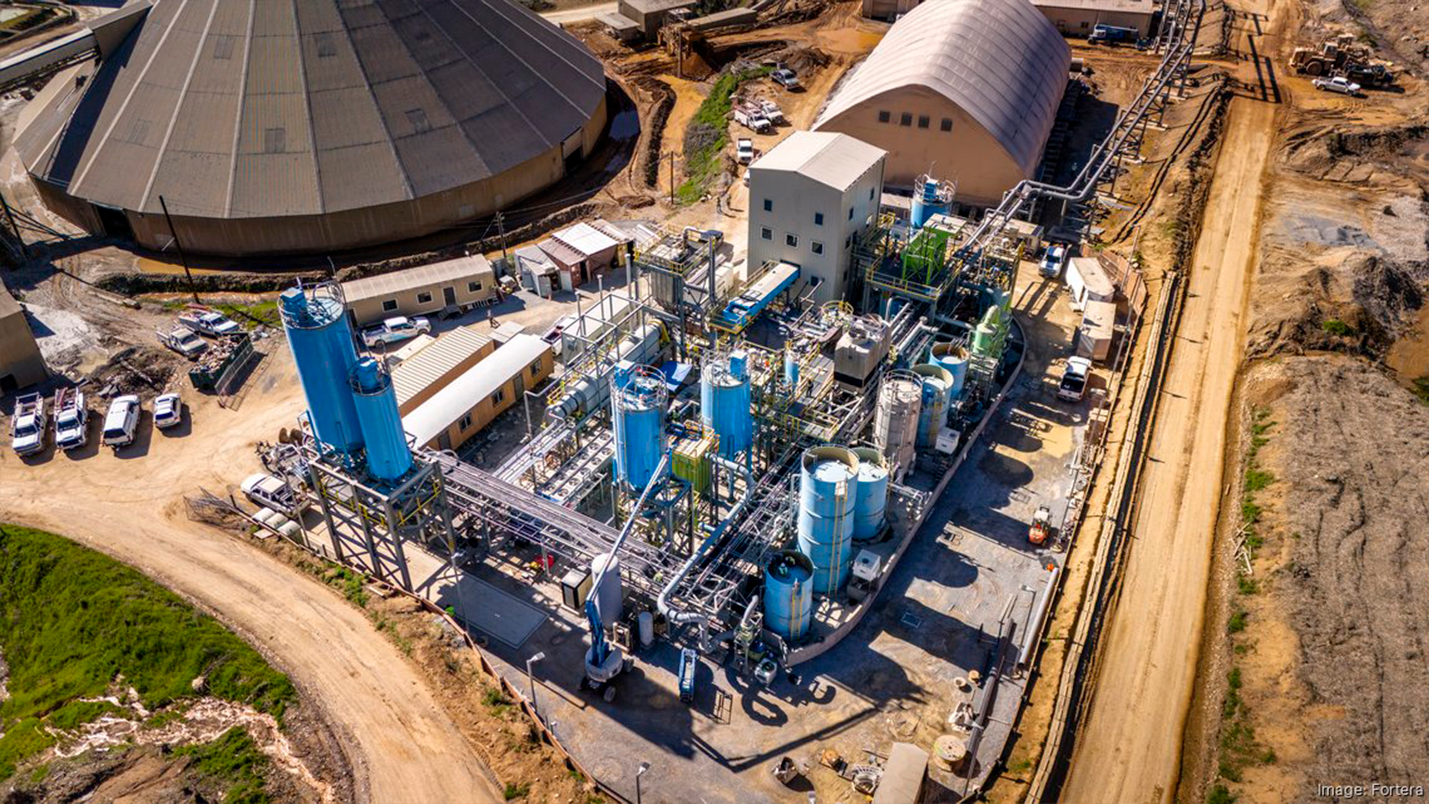Fortera’s sustainable cement plant has begun operations in Redding, California. This plant will produce 15,000 metric tons of cement per year using carbon dioxide released by a conventional cement plant. In the cement manufacturing process, calcium carbonate is typically heated to produce calcium oxide, a key ingredient in cement, in a process that generates carbon dioxide. Fortera mineralizes this CO2 released in this reaction and transforms it into a reactive form of calcium carbonate that can be used in cement. The carbon footprint of this process is said to be 70% lower compared to conventional cement manufacturing.
The company has formally started processing low-carbon ReAct cement at its ReCarb facility, which is adjacent to CalPortland’s cement plant in Redding, California. This plant is the first industrial carbon dioxide mineralization and green cement facility in North America and one of the largest of its kind in the world.
The Redding ReCarb plant is equipped to capture 6,600 tons of carbon dioxide annually from a smokestack serving the CalPortland plant and its meant to produce 15,000 tons of ReAct powder. The company estimates that they will be delivering product at the end of July to concrete producers, who can use ReAct as a complementary cementitious material in blended binders or as a complete replacement for Portland cement.
Ryan Gilliam, CEO of Fortera, expressed the importance of achieving this milestone for the industry, the production of sustainable cement, and achieving cement without carbon emissions in the future, which is invaluable for infrastructure and the health of our planet. He also recognized that this is one step in a much larger effort needed to achieve global commercialization and reaffirmed the commitment to scale this technology using existing infrastructure to mobilize widespread adoption of low and zero carbon cement.
Fortera has measured a 70% reduction in carbon emissions linked to its ReAct end product compared to Portland cement. The main compound in this product is a rare form of calcium carbonate. There are several options for ReAct testing and concrete demonstrations, including CalPortland and Vulcan Materials ready-mix operations with their centralized concrete supply.
This ReCarb technology reduces carbon emissions throughout the value chain without incurring in substantial capital costs, creating a product that is as effective as regular cement. Another benefit of this product is the increase in overall production: when limestone is heated in a cement kiln, almost half of it is lost as CO2. Mineralization of emissions from the calcination phase through ReCarb produces one ton of green cement for every ton of limestone used.
Additionally, ReCarb will help reduce energy consumption, given that the kiln temperature is lower, thus opening a very positive path towards the production of cement with zero CO2 emissions, processed with equipment that uses renewable energy.
Quote: https://forteraglobal.com/news/


